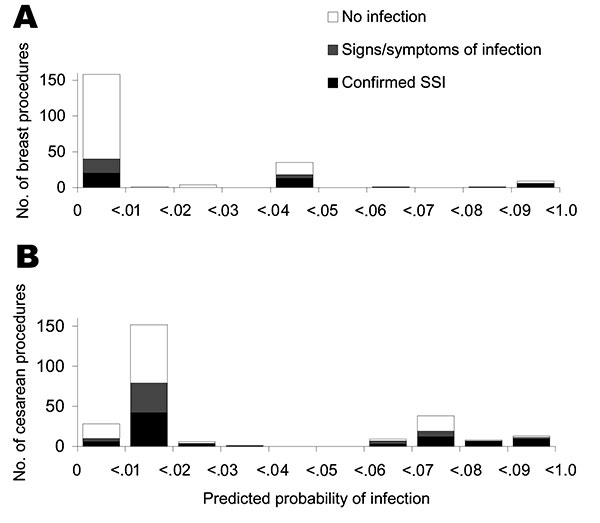Volume 10, Number 11—November 2004
Research
Enhanced Identification of Postoperative Infections among Outpatients
Figure 1

Figure 1. . Infectious outcomes by predicted probability of surgical site infections (SSI) calculated from SSI indicators for A) breast procedures and B) cesarean sections. Shown are all procedures with adequate documentation, which excludes 80%–90% of procedures with no SSI indicator and predicted probability of infection at baseline, 0.006. Predicted probability of infection is based on the categories of SSI indicators found in claims and pharmacy records. The infectious outcomes for breast procedures are based on postoperative days 0–60; cesarean section outcomes are from days 0–30.
Page created: January 04, 2013
Page updated: January 04, 2013
Page reviewed: January 04, 2013
The conclusions, findings, and opinions expressed by authors contributing to this journal do not necessarily reflect the official position of the U.S. Department of Health and Human Services, the Public Health Service, the Centers for Disease Control and Prevention, or the authors' affiliated institutions. Use of trade names is for identification only and does not imply endorsement by any of the groups named above.